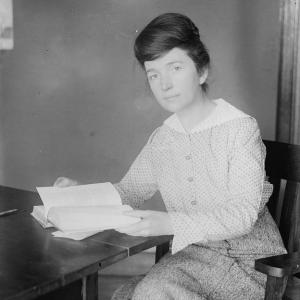Susikatze
Well-Known Member
- Joined
- Oct 14, 2020
- Messages
- 1,693
- Reaction score
- 8,126
<modsnip - discussing social media comments>
this is the early 1950s. There were no records, many adoptions were done privately by local individuals who just knew someone, churches, charities and within communities. There were also famous and infamous ladies who checked for places with unwed mothers and collected their babies to adopt them out. Without any official record. Everything was hush hush and hardly anything made it into official files.
My own grandfather in the 1920s had a foster brother whose birth mom was unwed and unstable and couldnt keep him. She just went from door to door asking people if they knew someone trustworthy. She was directed to my greatgrandparents place who had a small boy the same age (my grandfather). My greatgrandma, the sweet woman she was, didnt hesistate to take the unknown boy in. She fostered him until his teens (when his birth mom came back to claim him) and he returned to her after escaping his birth moms care. There was never an official adoption and no records.
It was no different in the early 50s.
this is the early 1950s. There were no records, many adoptions were done privately by local individuals who just knew someone, churches, charities and within communities. There were also famous and infamous ladies who checked for places with unwed mothers and collected their babies to adopt them out. Without any official record. Everything was hush hush and hardly anything made it into official files.
My own grandfather in the 1920s had a foster brother whose birth mom was unwed and unstable and couldnt keep him. She just went from door to door asking people if they knew someone trustworthy. She was directed to my greatgrandparents place who had a small boy the same age (my grandfather). My greatgrandma, the sweet woman she was, didnt hesistate to take the unknown boy in. She fostered him until his teens (when his birth mom came back to claim him) and he returned to her after escaping his birth moms care. There was never an official adoption and no records.
It was no different in the early 50s.
Last edited by a moderator:

